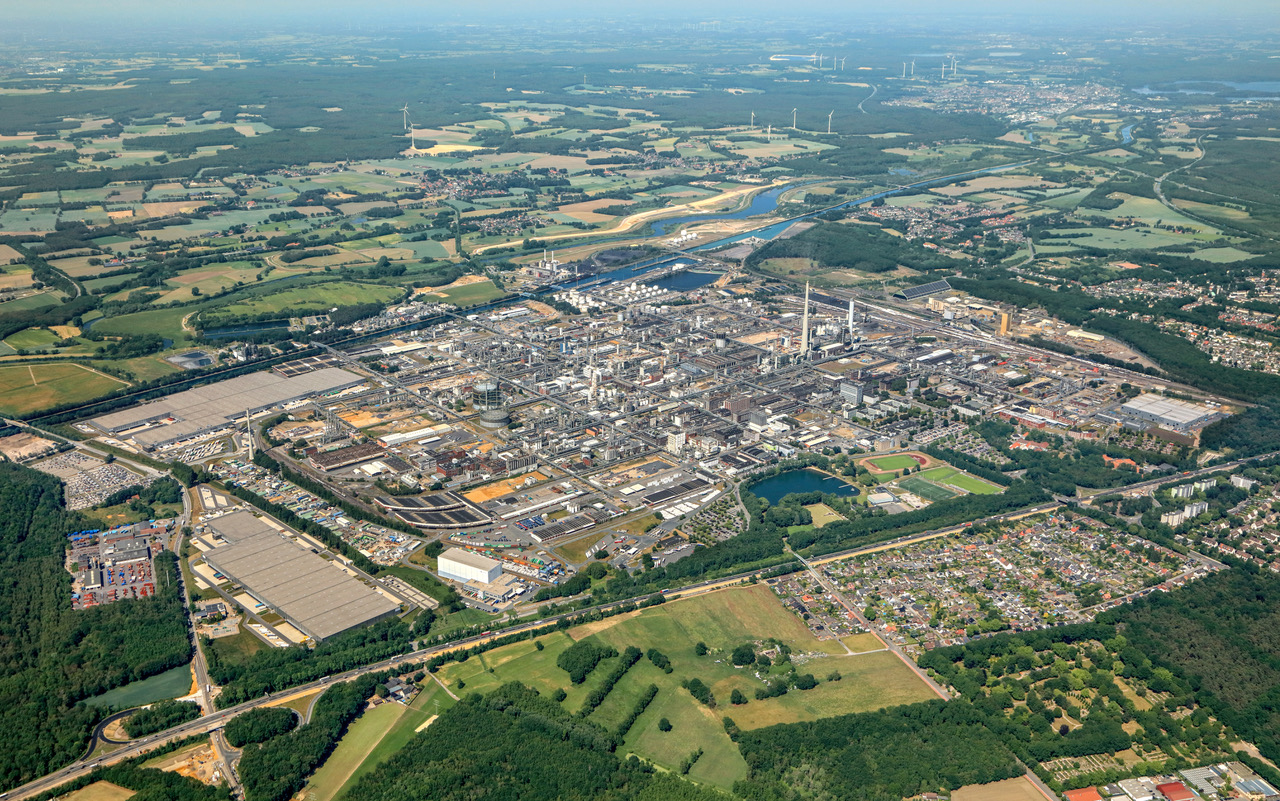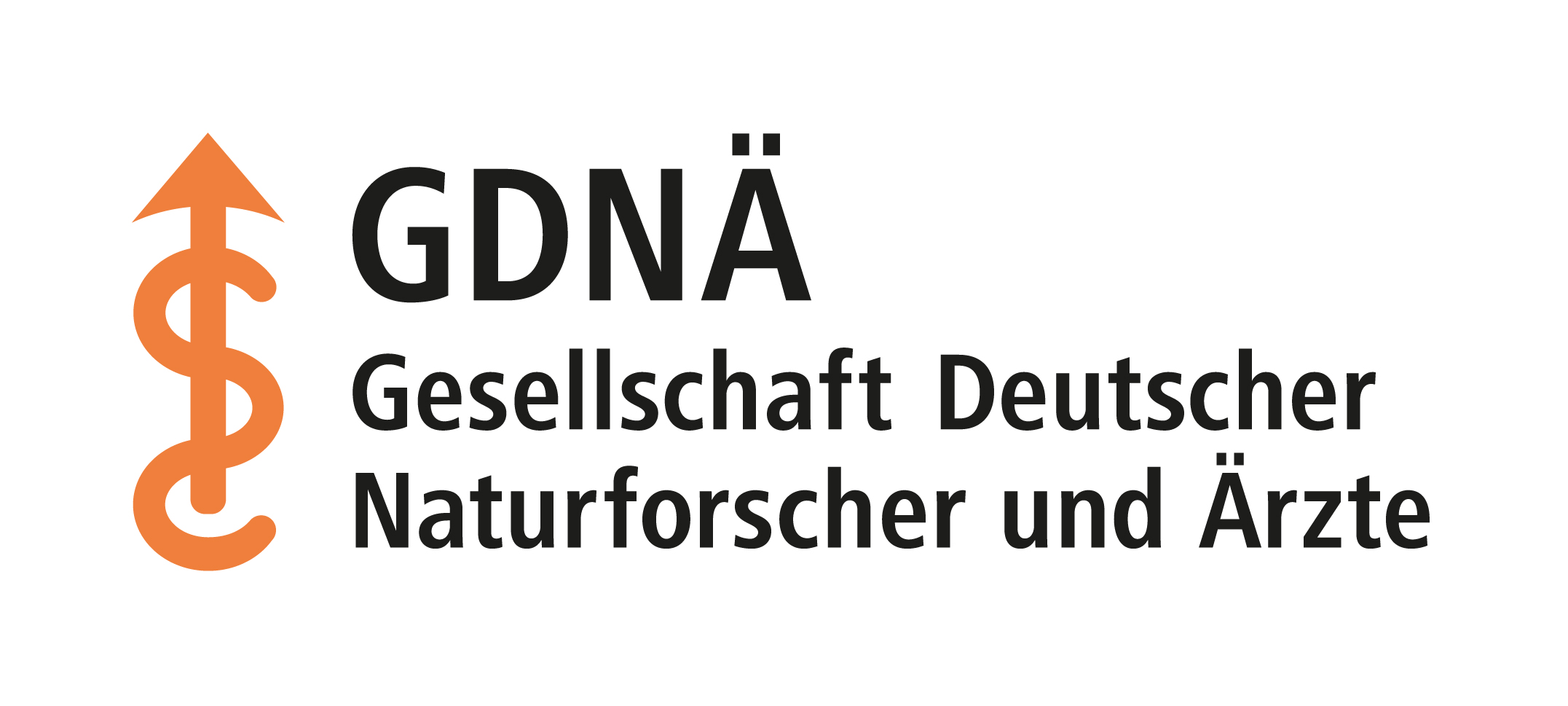“Bringing people together, developing ideas”
He was an innovation manager in the chemical industry and now keeps the Society of German Natural Scientists and Physicians on its toes: Michael Dröscher on his plans for the GDNÄ of the future.
Professor Dröscher, you have been Secretary General since 2015 and a member of the Board and Treasurer of the Society of German Natural Scientists and Physicians since 2017. What is its greatest treasure?
Clearly the people who are close to our society. I include our members and all those who take an interest in us and contribute to our activities, for example by giving talks at our meetings. A great treasure is also the student programme, which gives us wonderful access to young people. Of course, we hope to attract even more people from science, society, and schools to become members. This is not easy these days.
Why is that?
Most associations are losing members and don’t have enough new blood. The GDNÄ, which is also organised as an association, is no exception. Fortunately, we are very generously supported by foundations, so our existence does not depend solely on membership fees. We do not simply accept the decline but do our utmost to fight it.
How can we do that?
First, we involve young people more than in the past, for example with our own formats at our meetings. For example, at the start of the 200th anniversary celebrations in Leipzig, schoolchildren will organise a part of the programme under the motto “We only have one Earth”. Second, we want to activate our members more strongly, we still see a lot of potential there. As soon as the Corona situation allows, there will also be regional presence meetings again. We introduced this new format before the pandemic and hope to be able to invite our members again soon to exchange ideas with them across disciplines.
Is the interdisciplinary approach of the GDNÄ still up to date in view of ever greater specialisation in the natural sciences?
Both are important, but the importance of the interdisciplinarity is growing. Let us take my field, chemistry. There is still the classical synthesis of molecules and the development and optimisation of processes. But the great advances occur where chemists work together with biologists and computer scientists. In the GDNÄ we want to inspire this, at our meetings and in between at the regional meetings. I see an enormous need here that is not met by any other scientific society. The personal exchange about new findings in biology, chemistry, physics, computer science, engineering, and medicine without direct pressure to exploit them and with leading experts – that is a great opportunity for the GDNÄ.

Aerial view of the Marl Industrial Park in the Ruhr region: with an area of more than six square kilometres, the site is one of the largest industrial parks in Germany. What was once the address of Chemische Werke Hüls AG is now Evonik’s largest site. A total of more than ten thousand people work in the Marl Industrial Park – in almost twenty companies. © Evonik Industries AG
Is this only about basic research or also about applied knowledge?
Both should play a role. However, applied research is often neglected in public discourse as well as within the GDNÄ. It deserves more attention.
You know both worlds and, after professional beginnings in academia, you moved to industry. In 1982 you started your industrial career at Chemische Werke Hüls AG, a company that no longer exists. How did you experience the structural change in the German chemical industry?
This change began soon after I joined Hüls AG in the early 1980s with more and more company mergers and start-ups. When you are in the middle of it, it is not always easy. Overall, however, this development was inevitable in order to survive in an increasingly globalised world. Ultimately, the many mergers have made the German chemical industry stronger and more innovative. One example: the Marl Chemical Park, where I started, is now Evonik’s largest site and is also home to about 25 other chemical companies.
You worked as an innovation manager for many years. There is a continuous need for creative and at the same time practicable solutions. Do you have a recipe?
Unfortunately, there is no patent remedy. What worked for me was this approach: bring together good people from different company divisions, let them develop their ideas in protected start-up-like structures, so-called project houses, and feed the solutions, as soon as they are close to the market, into the divisions of the parent company. This approach proved successful, for example, with the Hüls subsidiary Creavis, which then became part of Degussa, both of which have since been merged into the Evonik Group.
Have successful innovations come from this approach?
I think so. At Creavis, for example, we developed biochemical processes for the production of amino acids, in which Evonik is now the world market leader. Very early on, work was done there on functional nanoparticles, which are indispensable in many areas today – just think of the production of microchips and the application in paints and cosmetics.

Production facilities in the evening light: The Marl Industrial Park is connected in many ways to the European road, rail and waterway network. © Evonik Industries AG
How do you see the future of Germany as an industrial location?
We are in the middle of a major transformation towards more climate-friendly energy sources and raw materials. The fossil age is coming to an end, and it is clear to industry that it must completely reposition itself. The investments for the next 15 to 30 years are already geared to this. The transformation can succeed if we have enough hydrogen and can reliably obtain it from sun-rich countries. Some countries, such as Saudi Arabia, are preparing for this. As a member of the Enquete Commission on the Future of the Chemical Industry in North Rhine-Westphalia, I have dealt extensively with this topic and continue to advise companies on these issues.
Much of the public debate is currently about gas as a transitional solution. What is your opinion?
In order to meet the growing energy demand in our country and to replace the coal and nuclear power plants that we have shut down and will shut down in the near future, we cannot do without gas in the foreseeable future. In the future, the chemical industry alone will need as much electricity as all private households together today, and electromobility will need as much again. Gas-fired power plants will probably be needed as a bridging technology for another 15 to 20 years. We also need to build new plants. Evonik is currently building two new gas-fired power plants in the Marl Chemical Park to replace two coal-fired units. In any case, we have to ensure that we can obtain as much gas as we need, whether it comes as liquefied gas by tanker or via the pipelines. If Nord Stream 2 does not come for political reasons, we will need other supply routes.
Finally, let’s take another look at the GDNÄ, which will soon be 200 years old. How far are you with the preparations for the celebration?
We are right on schedule. With the Leipzig Congress Hall we have found a wonderful venue for the festive assembly in September, the lecture programme with renowned scientists is set and the students will come together in early summer to design their part of the programme. There will be an attractive, generally understandable commemorative publication in book form. We are increasingly addressing the public this time: with media reports, via Twitter and other social media, and with lectures to which all Leipzigers are invited. We attach great importance to the exchange with society – entirely in the spirit of the Year of Science 2022, which aims to strengthen citizen participation in science and research under the motto “Nachgefragt!” – which means both, “Inquired” and “in demand!”.

Prof. Dr. Michael Dröscher © GDNÄ
About the person
Prof. Dr Michael Dröscher has been Treasurer and Board Member of the GDNÄ since 2017 and its Secretary General since 2015. He comes from Kirn on the Nahe, where he was born in 1949. He studied chemistry in Mainz, where he also completed his doctorate. He then took a position as a scientific assistant at the University of Freiburg and habilitated in macromolecular chemistry at the age of only 31. He continued his academic career first as a Privatdozent and from 1988 as an adjunct professor at the University of Münster.
Even more than basic research, Michael Dröscher is interested in the application of scientific results – and so his path led him to industry. He started in 1982 as a laboratory manager and in 1984 as a department head at Hüls AG in Marl, North Rhine-Westphalia. He was to remain with the chemical company, or rather the successor companies Degussa-Hüls, neue Degussa and Evonik-Industries AG, for 27 years – in changing functions. In 1997, the experienced chemist was appointed managing director of the newly founded Hüls subsidiary Creavis Gesellschaft für Technologie und Innovation mbH; today the company operates under the umbrella of Evonik Industries AG as Evonik Creavis GmbH. Five years later, in 2002, Michael Dröscher became Innovation Manager at Degussa AG, which later became part of Evonik.
Michael Dröscher was also involved in professional societies and professional politics, including as chairman of the German Bunsen Society (2005 to 2006) and from 2020 to 2011 as president of the German Chemical Society and as manager of the CHEMIE.NRW cluster. He holds an honorary doctorate from Kazan National Research Technological University (Russia).
In addition to his duties in the GDNÄ, Michael Dröscher is active in many honorary capacities: as Chairman of the Board of Directors of the Max Planck Institute for Coal Research in Mülheim and as a member of several boards of trustees and advisory boards of institutes of the Max Planck Society, the Leibniz Association and university institutes. He is also a member of the supervisory board of bValue AG, which promotes and co-finances start-ups.
How innovation can revitalise the chemical industry: This is described in a practical way by renowned experts in this book co-edited by Michael Dröscher. Here is a reading sample from the English-language title (ISBN 3-00-012425-X.) © Festel Capital
Weitere Informationen:
